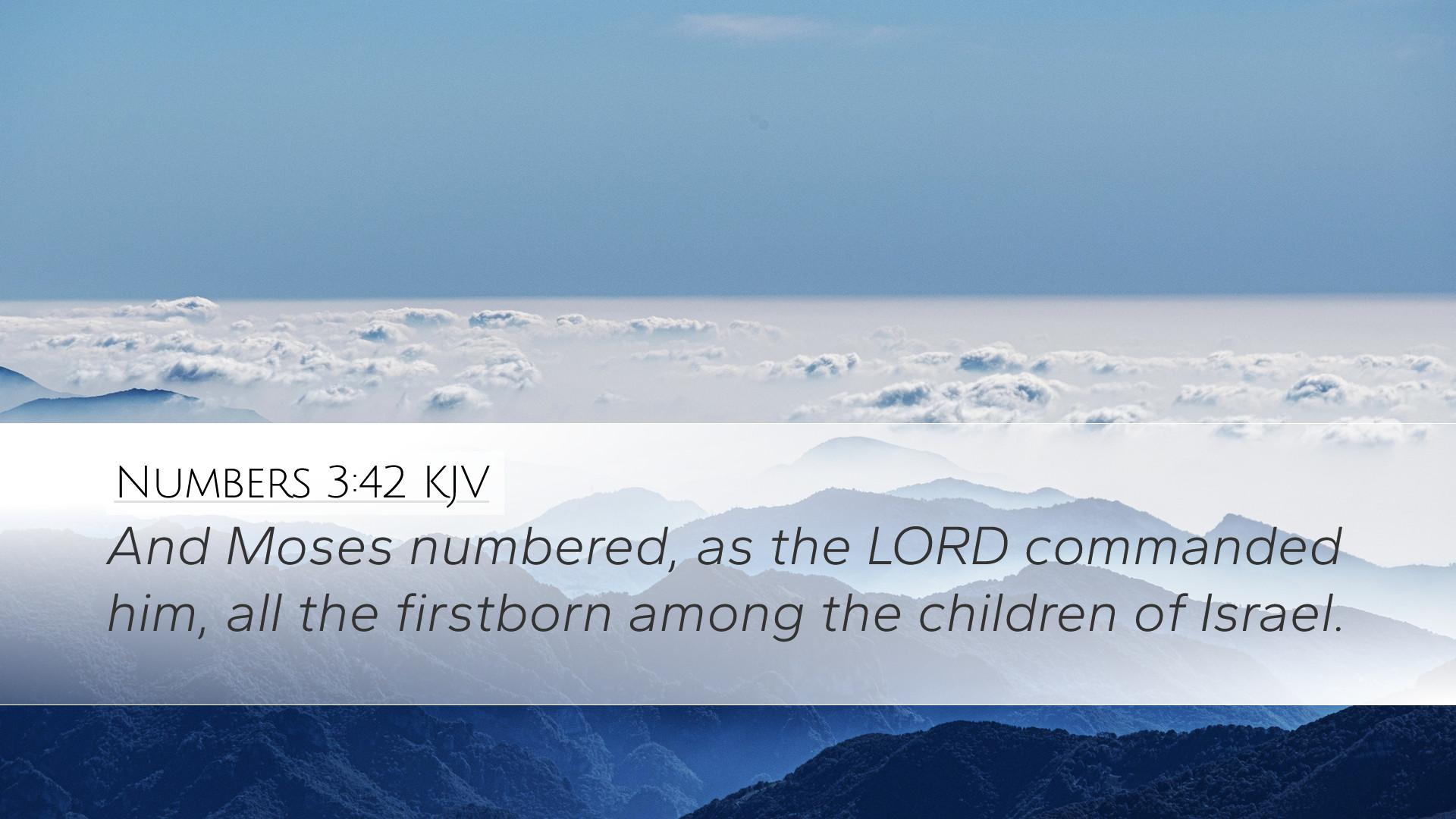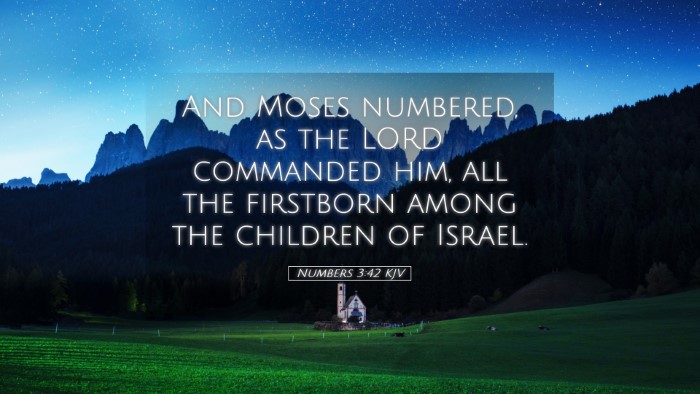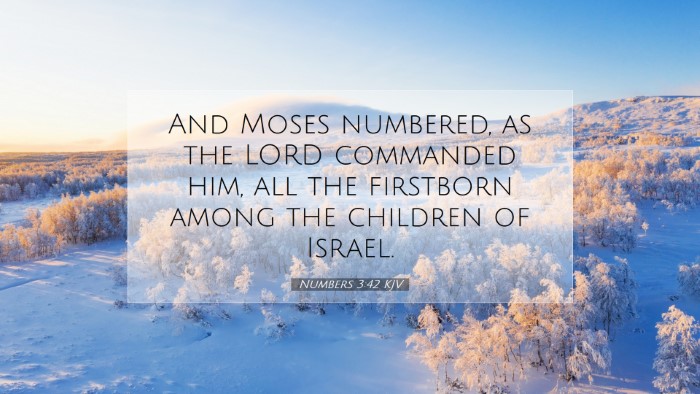Commentary on Numbers 3:42
This verse forms part of the Levitical census that takes place in the Book of Numbers. The context here is critical as it deals with the special role of the Levites in the service of God’s tabernacle and the overall organization of the Israelite camp.
Text of Numbers 3:42
“And Moses numbered all the firstborn of the children of Israel, as the Lord commanded him.” (Numbers 3:42)
Understanding the Firstborn of Israel
Matthew Henry emphasizes the significance of the firstborn in the Israelite tradition. The firstborn held a special place within the family and community. In Exodus, God declared that every firstborn male was His property, mirroring the sanctification that they were to be set apart for service or sacrifice.
The firstborn represented not only the strength of the family but also a holy covenant that linked their fate with God’s deliverance. In this context, the counting of the firstborn serves as both a communal act and an affirmation of their intended divine purpose.
The Role of Moses in the Census
In this verse, Moses is depicted as the obedient servant tasked with executing God's commands. Albert Barnes points out that Moses’ role is illustrative of how leaders in the faith must act in accordance with divine directive, highlighting the importance of obedience in fulfilling one's responsibilities.
This obedience is not merely a personal exercise but serves as a communal model, ensuring that the people are adequately organized and ready for their covenant responsibilities. The act of numbering denotes a moment of divine order amidst the chaos of the wilderness wanderings.
The Theological Implications of Numbering
Adam Clarke dives deeper into the theological underpinnings of this verse. The numbering of the firstborn illustrates God's claim upon them. Clarke notes that the firstborn signifies a representative group, symbolizing both the promise of redemption and the necessity of sacrifice, as these firstborns would eventually give way to the Levites in priestly duties.
This act of numbering can also reflect the broader theme of covenantal relationship between God and His people. As Israel is numbered, it stands as a reminder of the accountability and the profound responsibility each member has to uphold the covenant laid out before them.
The Firstborn and Their Redemption
The numbering is not merely administrative; it has implications for redemption as articulated in Matthew Henry's commentary. The firstborn are to be redeemed as a sign of God’s mercy. This act of redemption anticipates the sacrificial system that will be established, foreshadowing the sacrifice of Christ as the ultimate firstborn who redeems.
This interplay of themes encourages a deeper reflection on the nature of sacrifice and redemption—fundamental concepts in Christian theology. By acknowledging God's ownership of the firstborn, the community reaffirms their collective identity in relation to God's redemptive purpose.
Practical Applications for Believers
This passage encourages modern readers, including pastors, students, theologians, and scholars, to consider their place in God’s order. Just as the firstborn were to be set apart for His service, so too are believers called to live lives that reflect their own divine purpose.
- Obedience: Follow God's commands in personal and communal worship.
- Reflection: Consider the implications of being chosen and called for service.
- Redemption: Understand the profound weight of what it means to be redeemed by Christ.
- Service: Seek ways to serve within the church community as a form of worship and obedience.
Conclusion
The act of numbering the firstborn serves as a powerful reminder of God's sovereignty, the importance of obedience, and the rich theological themes of sacrifice and redemption. For those engaged in ministry and scholarship, this verse invites reflection on our identity and purpose within God’s covenant community, affirming that each life is precious and holds a unique place within the divine order.


